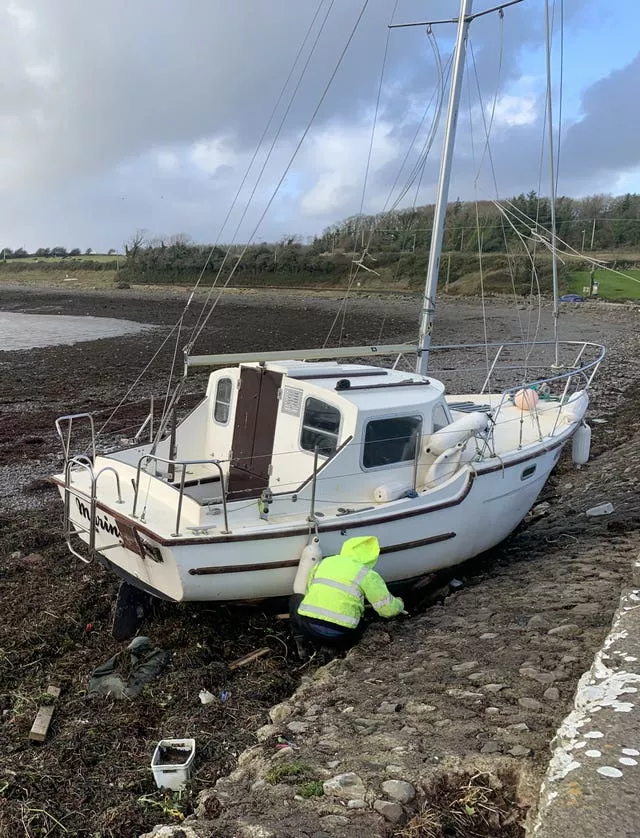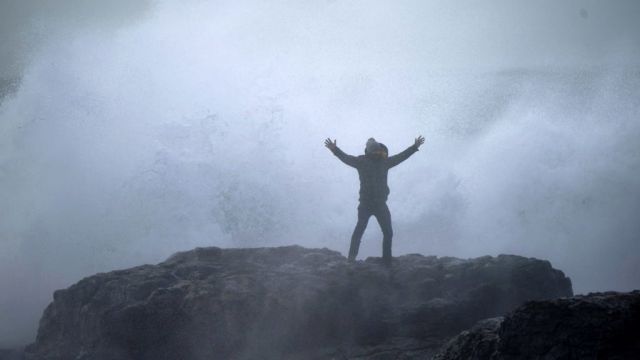The implementation of measures to protect against future climate impacts in Ireland is “too slow and fragmented”, according to a major scientific report.
The Environmental Protection Agency (EPA) published Ireland’s first Climate Change Assessment (ICCA) on Thursday.
It found that Ireland needs to rapidly reach at least net-zero carbon dioxide emissions and substantially cut other greenhouse gas emissions.
Despite reductions in every sector except agriculture, the EPA said Ireland has made “limited progress” in cutting greenhouse gas emissions and added that there is a “very long way to go”.
Ireland is ranked second highest in the EU when all greenhouse gas emissions are considered on a per person basis.
“Deep, rapid, immediate and sustained emission reductions are required to keep global warming in line with the key Paris Agreement temperature goals,” the report states.
It said that delayed action would likely leave an Irish climate that is “increasingly unrecognisable” as the century progresses.
The ICCA said that human activity has resulted in widespread and rapid changes in climate which are affecting people today.
Worldwide, the most recent decade was likely warmer than any sustained period in at least the last 100,000 years.
Global sea level has risen by 0.2m since 1900, and the rate of rise is accelerating.

The EPA said recent extreme events in Ireland highlight the vulnerability of individuals, communities, sectors and ecosystems to climate change and indicate shortcomings in preparation.
Annual average temperatures in the country are approximately 1C higher than the early 20th century, with 16 of the 20 warmest years occurring since 1990, and 2022 being the hottest year on record.
Overall, when aggregated, there has also been an increase in heavy precipitation extremes over Ireland.
Recent studies have highlighted higher rates of sea level rise than the global average since the late 20th century in Cork and Dublin.
The EPA warned that storm surges, and extreme waves will pose an increasing threat to Ireland as sea levels continue to rise.
Furthermore, increases in extreme floods and droughts are expected with impacts on water resources which will affect other sectors.
In 2021, Ireland legislated for five-yearly carbon budgets and sectoral emissions ceilings which set a limit on the amount of greenhouse gas emissions that can be released over defined periods.

This set a target for a 51 per cent reduction in total greenhouse gas emissions by 2030 compared to 2018.
However, the EPA warned that current policies are insufficient and Ireland is not on track to meet these targets.
Greenhouse gas emission estimates for 2021 and 2022 indicate that 47 per cent of Ireland’s first carbon budget has been emitted within the first two years of the five-year plan.
EPA director-general Laura Burke said the report reinforces the need for Ireland to “pick up the pace of action” to reduce greenhouse gas emissions.
She added: “If we can reach net-zero global carbon dioxide emissions by 2050, then many of the key components of the climate system such as temperature and precipitation would stabilise within the lifetime of many of today’s younger citizens and to the benefit of all of society.”







